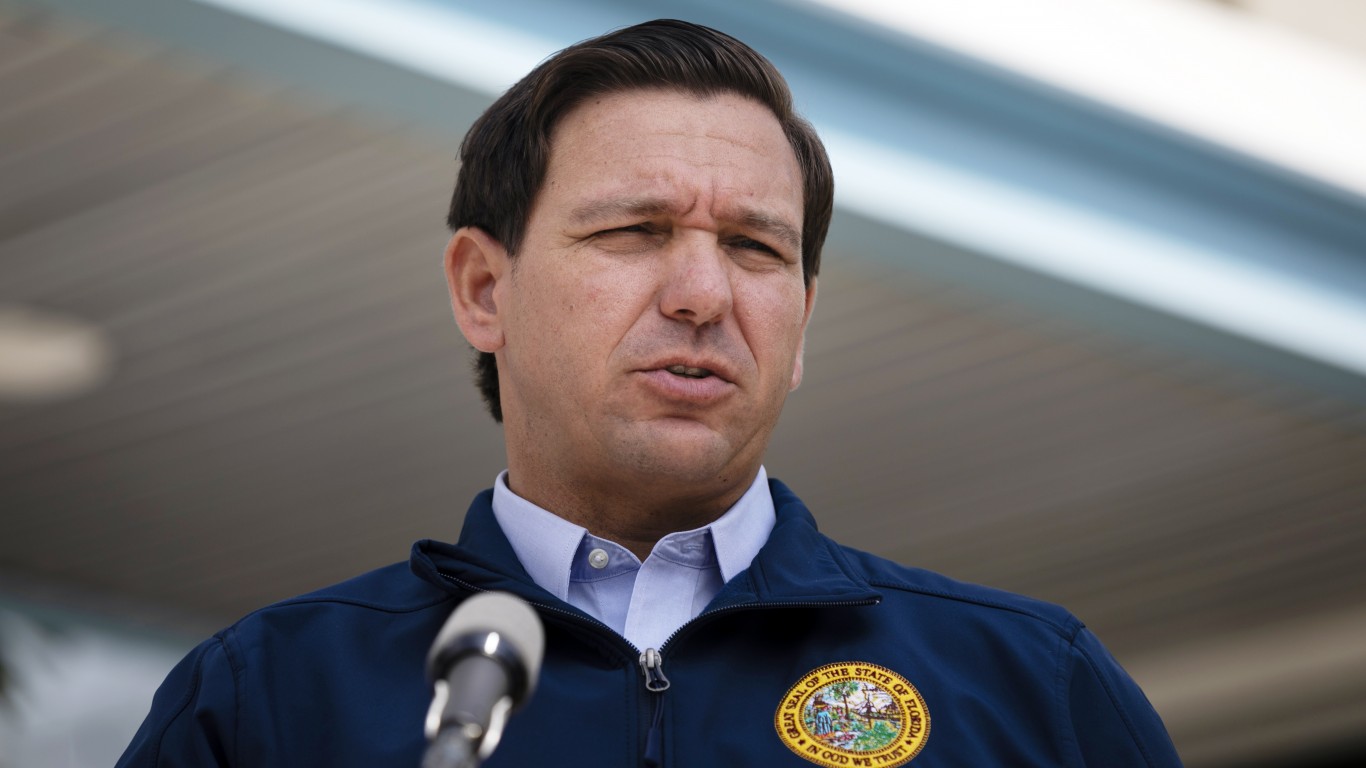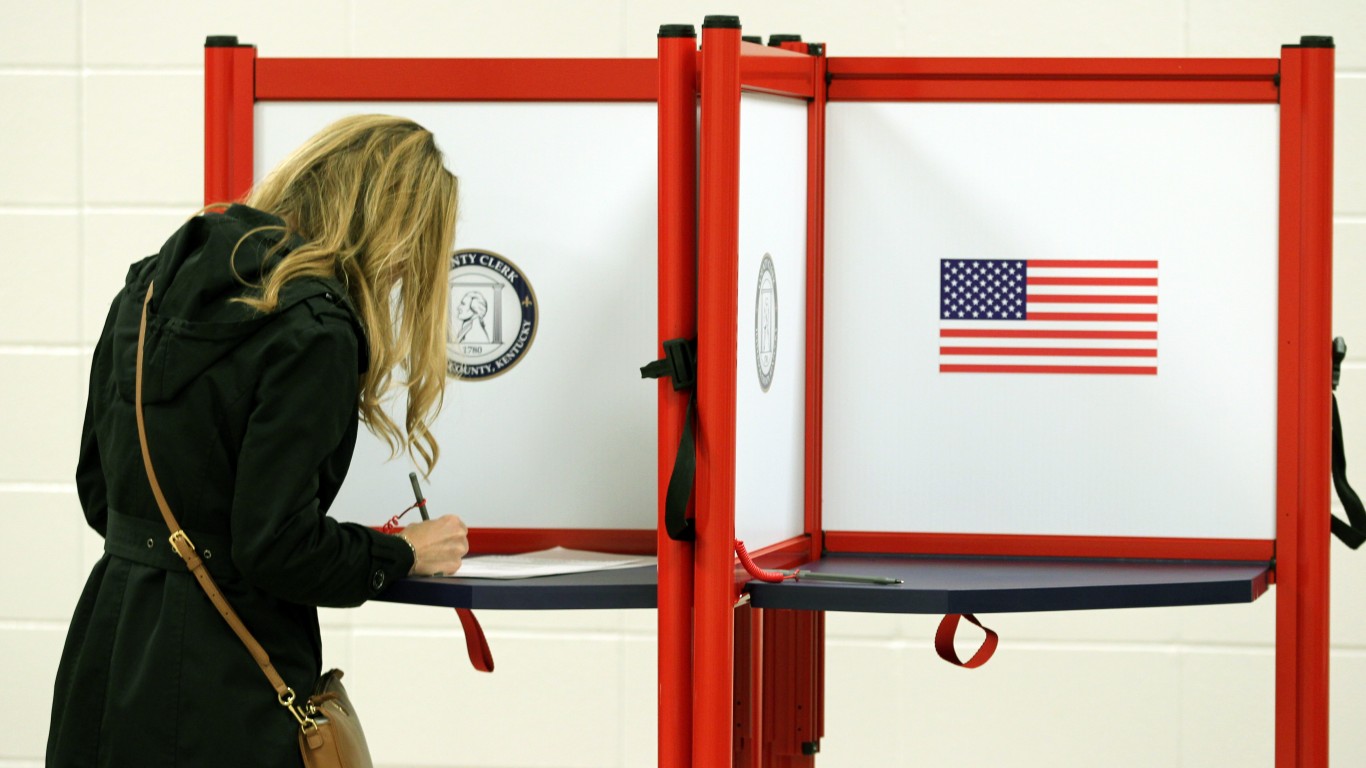
Every U.S. president since Ulysses S. Grant has been either a Republican or a Democrat. Dominated by only two major parties for over a century and half, American politics has long been a breeding ground for partisanship. While some level of political polarization can be a feature of a healthy democracy, the growing divide between the left and right in recent years has itself become one of the biggest problems facing the country.
Today, Americans are far more likely to have negative perceptions of those with differing political opinions than they were even a couple of years ago. One study, conducted by the Pew Research Center, found that the share of Republicans who see Democrats as dishonest and immoral climbed from 45% to 72% and 47% to 72%, respectively, between 2016 and 2022. Similarly, the share of Democrats who see Republicans as dishonest and immoral went from 42% to 64% and 35% to 63% over the same period.
Political gridlock in Washington is one symptom of America’s partisan divisions, as lawmakers are less likely to seek compromise now than they have been in decades. Another recent Pew study, which surveyed Americans of different party affiliations on 16 major issues facing the country, highlights just how deep these political divisions go. (Here is a look at Biden’s approval rating in every state.)
Using data from a June 2023 Pew survey, 24/7 Wall St. identified the biggest issues in America with the largest partisan divide. The 16 issues on this list are ranked by the gap between Democratic and Republican leaning voters who see them as a “very big problem.”
The two issues with the largest partisan divide are climate change and illegal immigration. Illegal immigration is one of the most important issues for right-of-center voters, with 70% Republicans and Republican-leaning independents see it as a “very big problem.’ Meanwhile, only 25% of their Democratic counterparts do.
Similarly, 64% of Democrats see climate change as a very big problem, more than four times the 14% share of Republicans who do. (Here is a look at the states where carbon emissions are rising fastest.)
Notably, one area on which similar shares of voters from both parties agree is partisanship itself. The ability of the two parties to work together is seen as a very big problem by 62% of Democrats and 63% of Republicans.
Click here to see the most partisan issues in American politics.

16. Unemployment
> Partisan divide on issue: 0 pt. gap between Republicans and Democrats
> Likely Democratic voters who see issue as a “very big problem”: 23% of those surveyed (the lowest of 16 issues in survey – tied)
> Likely Republican voters who see issue as a “very big problem”: 23% of those surveyed (14th highest of 16 issues in survey)
> American adults who see issue as a “very big problem”: 24% of those surveyed
[in-text-ad]
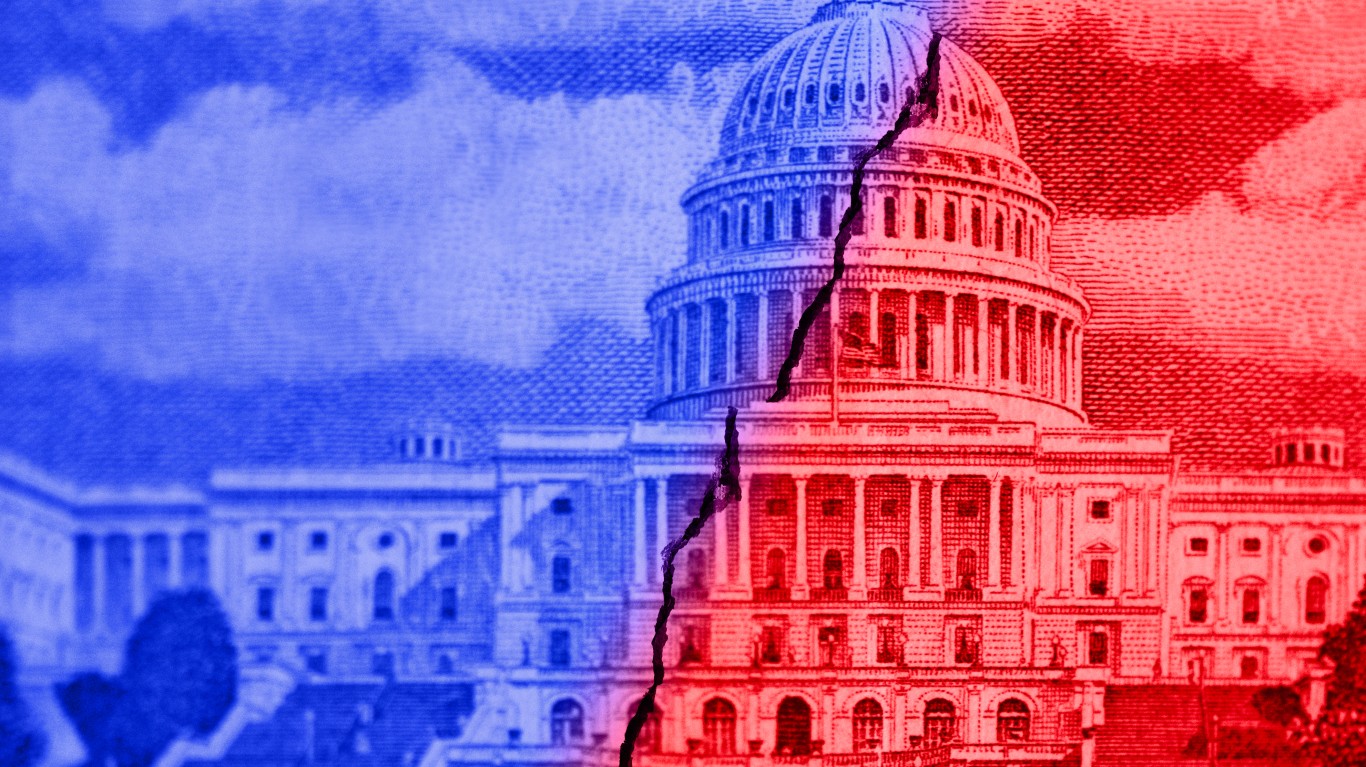
15. The ability of Dems/Reps to work together
> Partisan divide on issue: 1 pt. gap between Republicans and Democrats
> Likely Democratic voters who see issue as a “very big problem”: 62% of those surveyed (4th highest of 16 issues in survey)
> Likely Republican voters who see issue as a “very big problem”: 63% of those surveyed (7th highest of 16 issues in survey)
> American adults who see issue as a “very big problem”: 62% of those surveyed
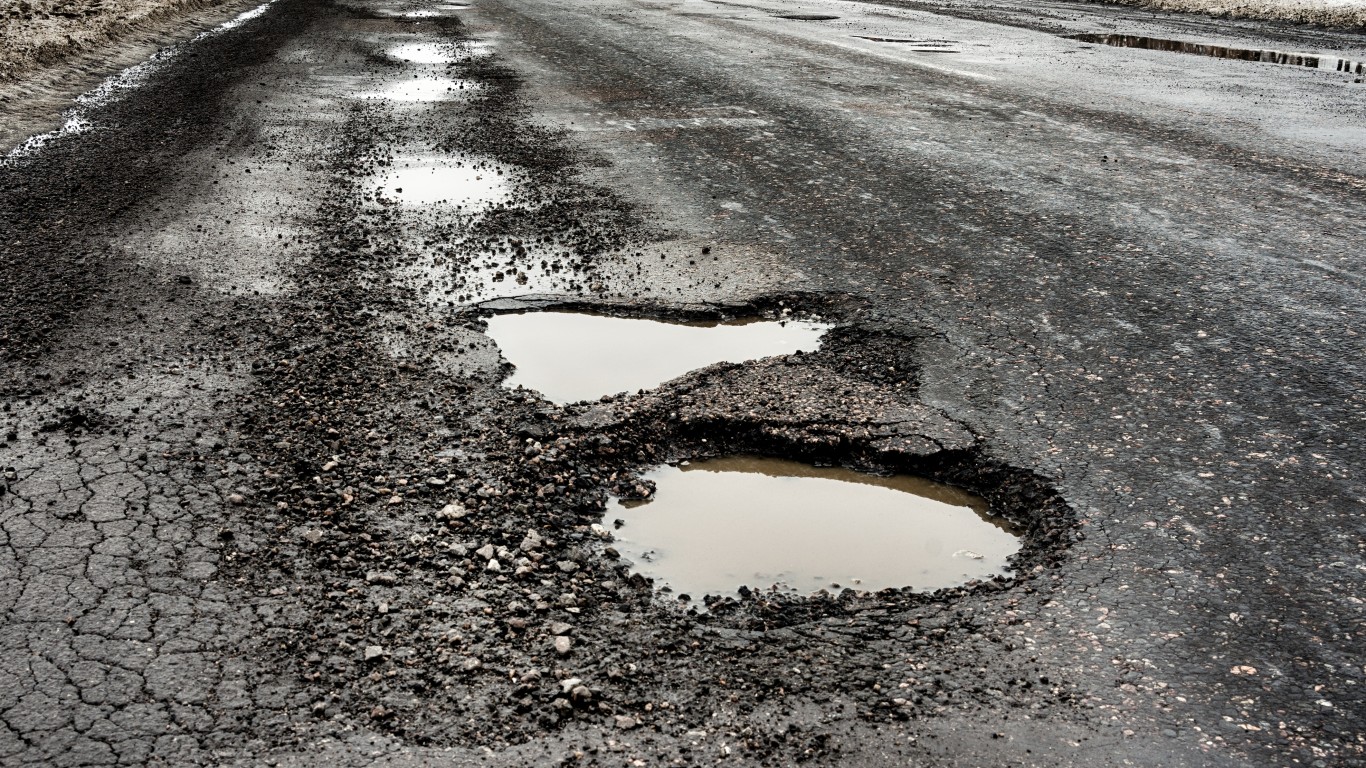
14. Condition of roads, bridges, and other infrastructure
> Partisan divide on issue: 8 pt. gap between Republicans and Democrats (tied)
> Likely Democratic voters who see issue as a “very big problem”: 37% of those surveyed (13th highest of 16 issues in survey)
> Likely Republican voters who see issue as a “very big problem”: 29% of those surveyed (12th highest of 16 issues in survey)
> American adults who see issue as a “very big problem”: 34% of those surveyed (tied)
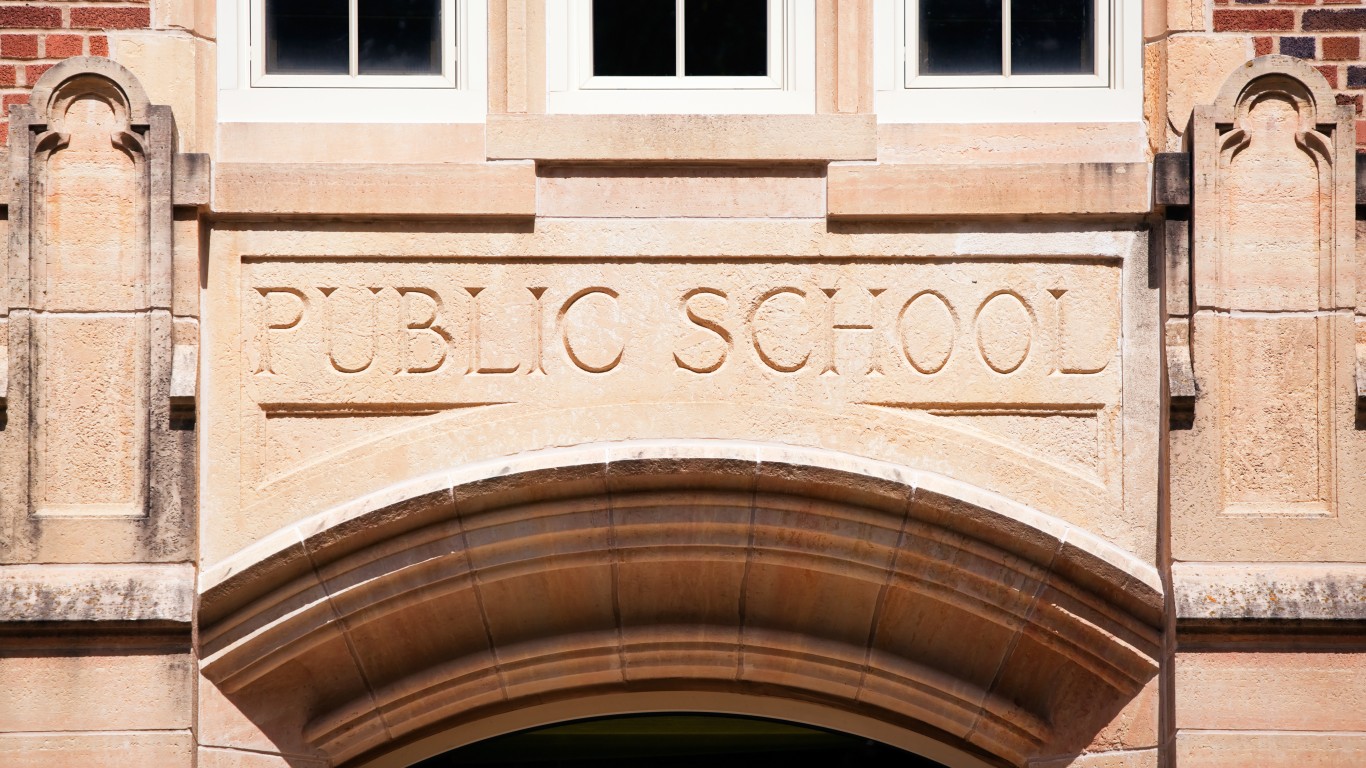
13. The quality of public K-12 schools
> Partisan divide on issue: 8 pt. gap between Republicans and Democrats (tied)
> Likely Democratic voters who see issue as a “very big problem”: 43% of those surveyed (9th highest of 16 issues in survey)
> Likely Republican voters who see issue as a “very big problem”: 51% of those surveyed (9th highest of 16 issues in survey)
> American adults who see issue as a “very big problem”: 47% of those surveyed (tied)
[in-text-ad-2]
12. Drug addiction
> Partisan divide on issue: 8 pt. gap between Republicans and Democrats (tied)
> Likely Democratic voters who see issue as a “very big problem”: 56% of those surveyed (5th highest of 16 issues in survey)
> Likely Republican voters who see issue as a “very big problem”: 64% of those surveyed (5th highest of 16 issues in survey – tied)
> American adults who see issue as a “very big problem”: 61% of those surveyed

11. Violent crime
> Partisan divide on issue: 12 pt. gap between Republicans and Democrats
> Likely Democratic voters who see issue as a “very big problem”: 52% of those surveyed (7th highest of 16 issues in survey – tied)
> Likely Republican voters who see issue as a “very big problem”: 64% of those surveyed (5th highest of 16 issues in survey – tied)
> American adults who see issue as a “very big problem”: 59% of those surveyed
[in-text-ad]

10. International terrorism
> Partisan divide on issue: 13 pt. gap between Republicans and Democrats
> Likely Democratic voters who see issue as a “very big problem”: 23% of those surveyed (the lowest of 16 issues in survey – tied)
> Likely Republican voters who see issue as a “very big problem”: 36% of those surveyed (11th highest of 16 issues in survey)
> American adults who see issue as a “very big problem”: 30% of those surveyed
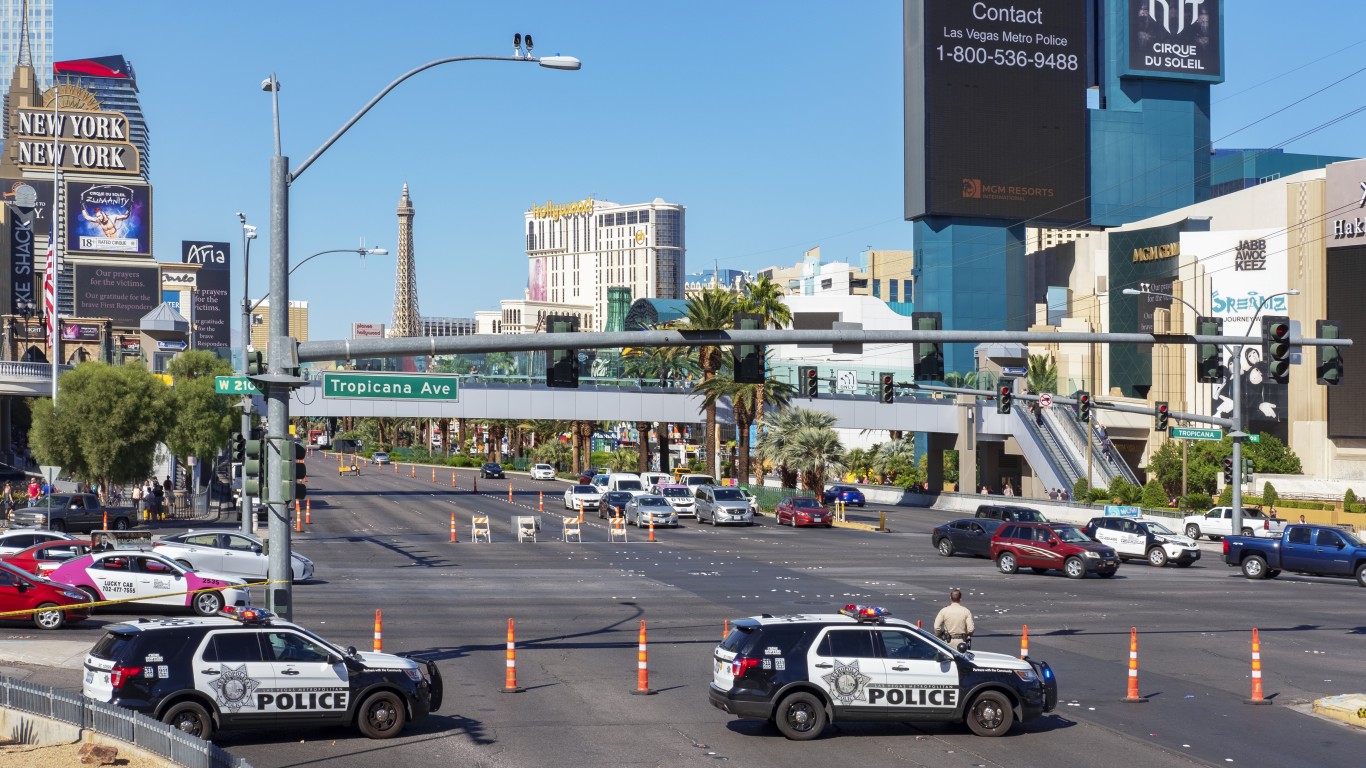
9. Domestic terrorism
> Partisan divide on issue: 16 pt. gap between Republicans and Democrats (tied)
> Likely Democratic voters who see issue as a “very big problem”: 41% of those surveyed (10th highest of 16 issues in survey)
> Likely Republican voters who see issue as a “very big problem”: 25% of those surveyed (13th highest of 16 issues in survey)
> American adults who see issue as a “very big problem”: 34% of those surveyed (tied)
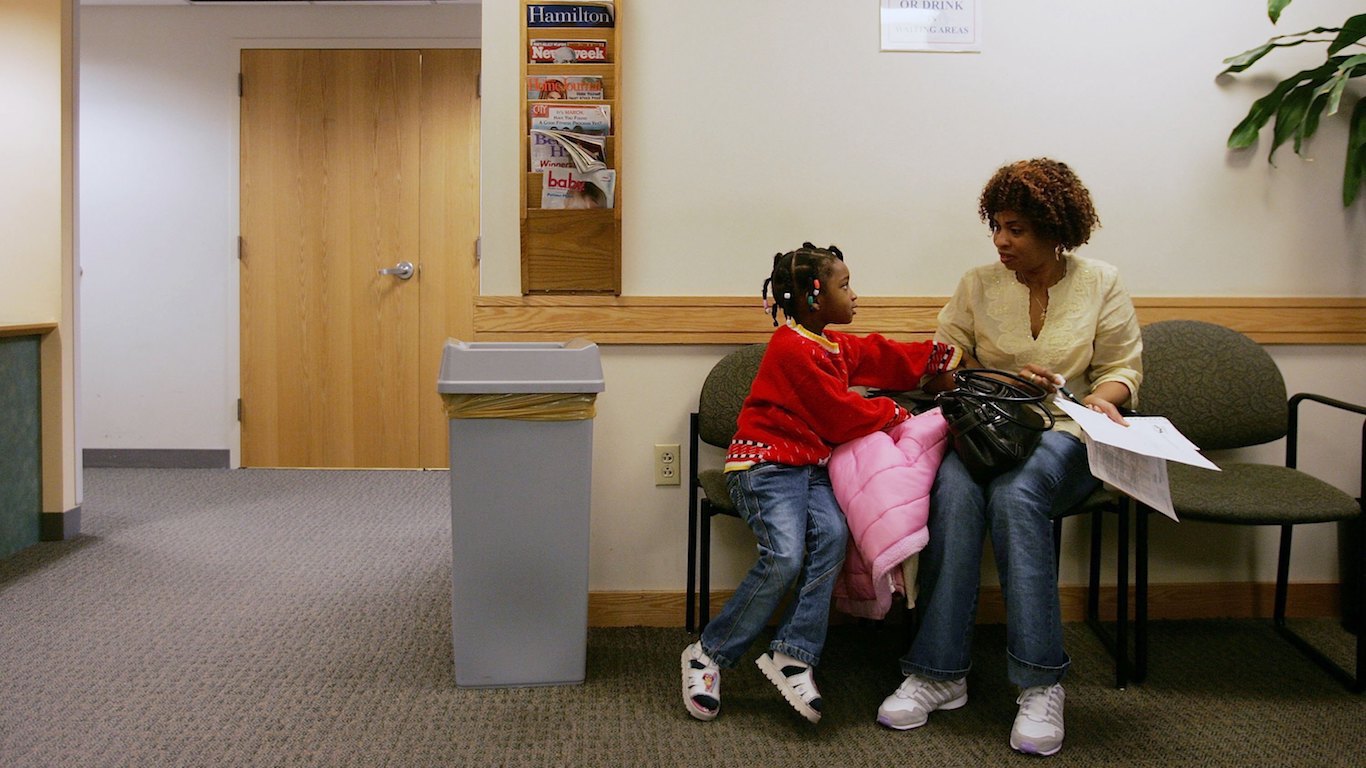
8. Health care affordability
> Partisan divide on issue: 19 pt. gap between Republicans and Democrats
> Likely Democratic voters who see issue as a “very big problem”: 73% of those surveyed (2nd highest of 16 issues in survey)
> Likely Republican voters who see issue as a “very big problem”: 54% of those surveyed (8th highest of 16 issues in survey)
> American adults who see issue as a “very big problem”: 64% of those surveyed
[in-text-ad-2]
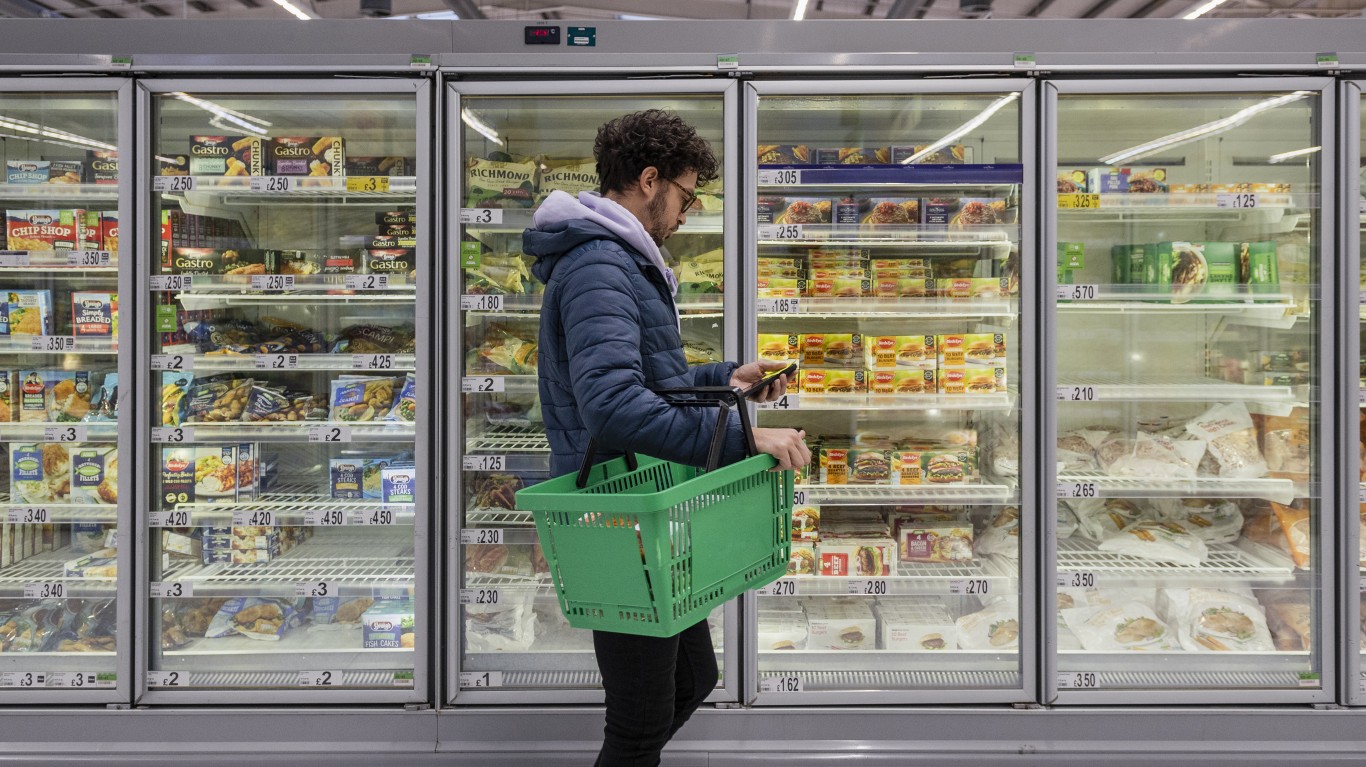
7. Inflation
> Partisan divide on issue: 25 pt. gap between Republicans and Democrats
> Likely Democratic voters who see issue as a “very big problem”: 52% of those surveyed (7th highest of 16 issues in survey – tied)
> Likely Republican voters who see issue as a “very big problem”: 77% of those surveyed (the highest of 16 issues in survey)
> American adults who see issue as a “very big problem”: 65% of those surveyed
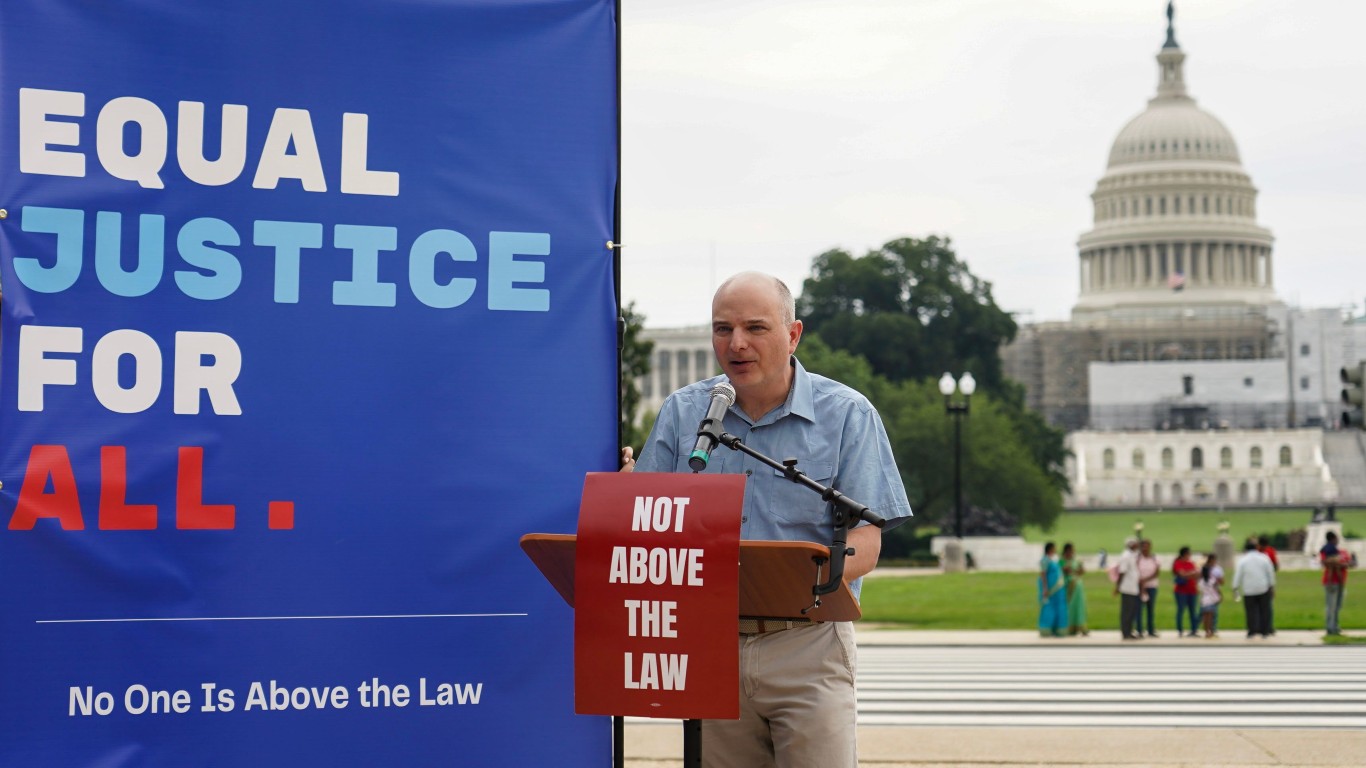
6. The state of moral values
> Partisan divide on issue: 30 pt. gap between Republicans and Democrats
> Likely Democratic voters who see issue as a “very big problem”: 39% of those surveyed (11th highest of 16 issues in survey – tied)
> Likely Republican voters who see issue as a “very big problem”: 69% of those surveyed (4th highest of 16 issues in survey)
> American adults who see issue as a “very big problem”: 54% of those surveyed
[in-text-ad]
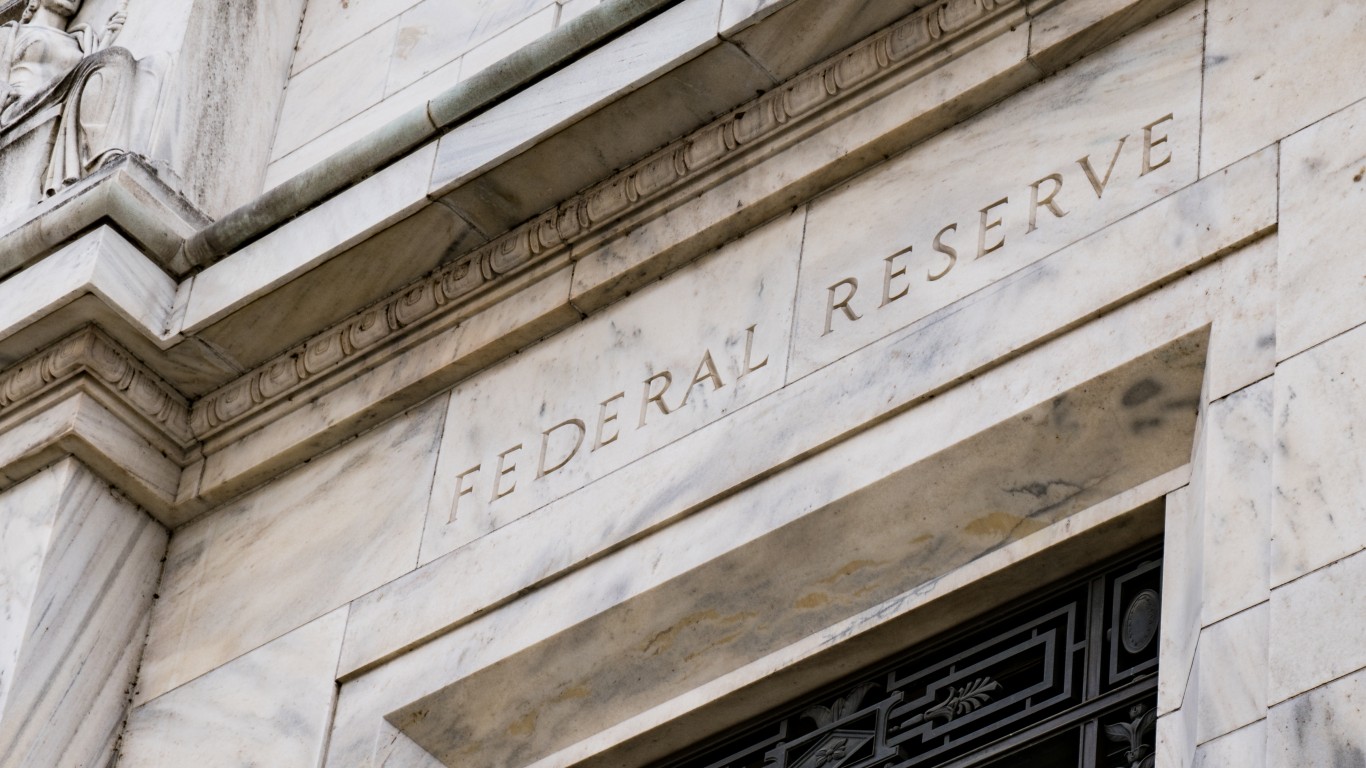
5. The federal budget deficit
> Partisan divide on issue: 33 pt. gap between Republicans and Democrats
> Likely Democratic voters who see issue as a “very big problem”: 39% of those surveyed (11th highest of 16 issues in survey – tied)
> Likely Republican voters who see issue as a “very big problem”: 72% of those surveyed (2nd highest of 16 issues in survey)
> American adults who see issue as a “very big problem”: 56% of those surveyed
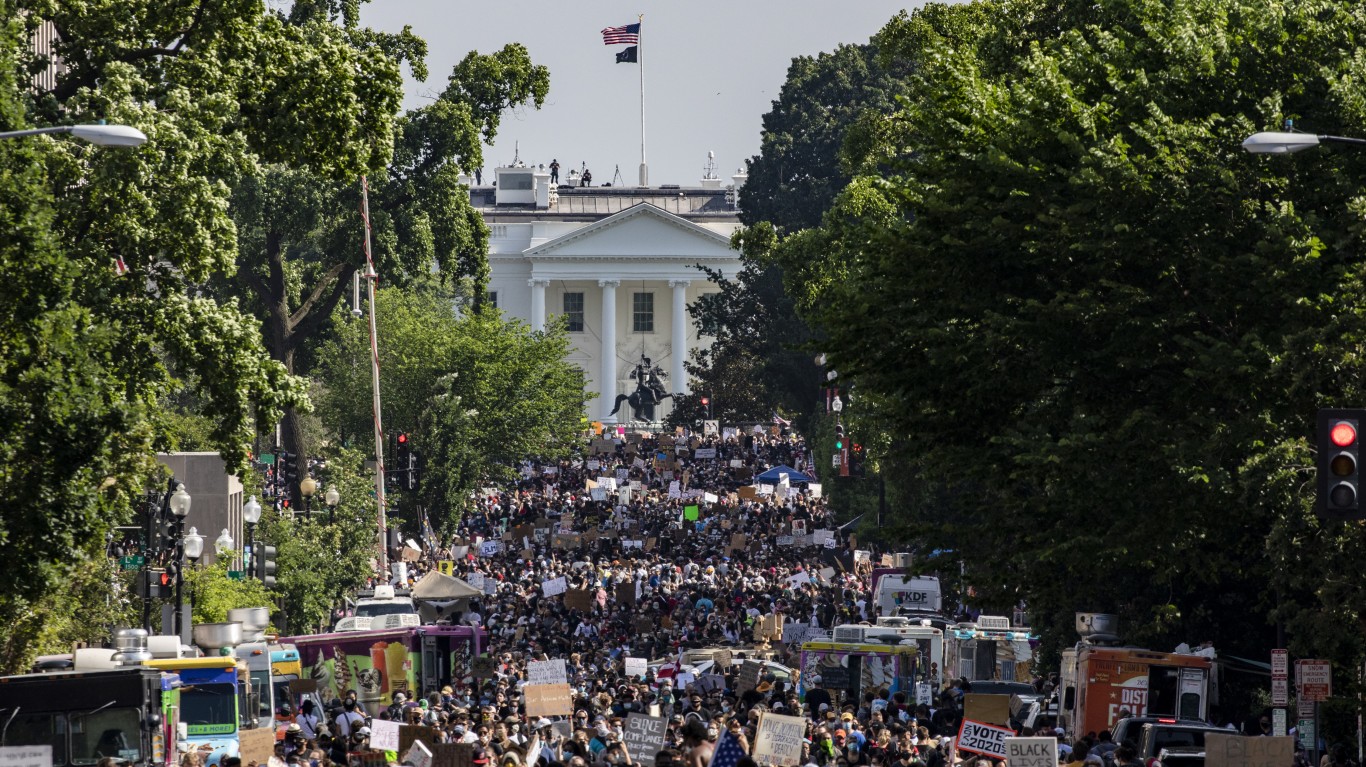
4. Racism
> Partisan divide on issue: 41 pt. gap between Republicans and Democrats
> Likely Democratic voters who see issue as a “very big problem”: 55% of those surveyed (6th highest of 16 issues in survey)
> Likely Republican voters who see issue as a “very big problem”: 14% of those surveyed (the lowest of 16 issues in survey – tied)
> American adults who see issue as a “very big problem”: 35% of those surveyed
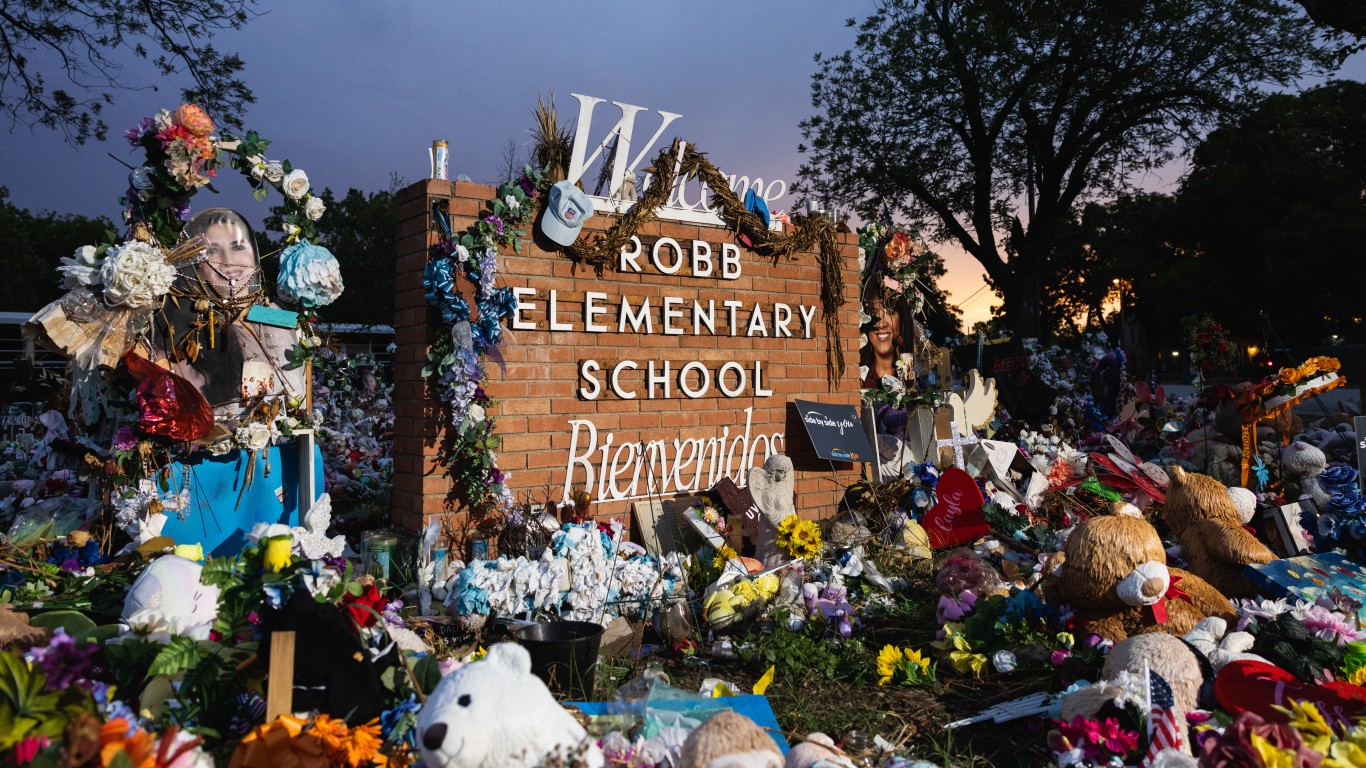
3. Gun violence
> Partisan divide on issue: 43 pt. gap between Republicans and Democrats
> Likely Democratic voters who see issue as a “very big problem”: 81% of those surveyed (the highest of 16 issues in survey)
> Likely Republican voters who see issue as a “very big problem”: 38% of those surveyed (10th highest of 16 issues in survey)
> American adults who see issue as a “very big problem”: 60% of those surveyed
[in-text-ad-2]
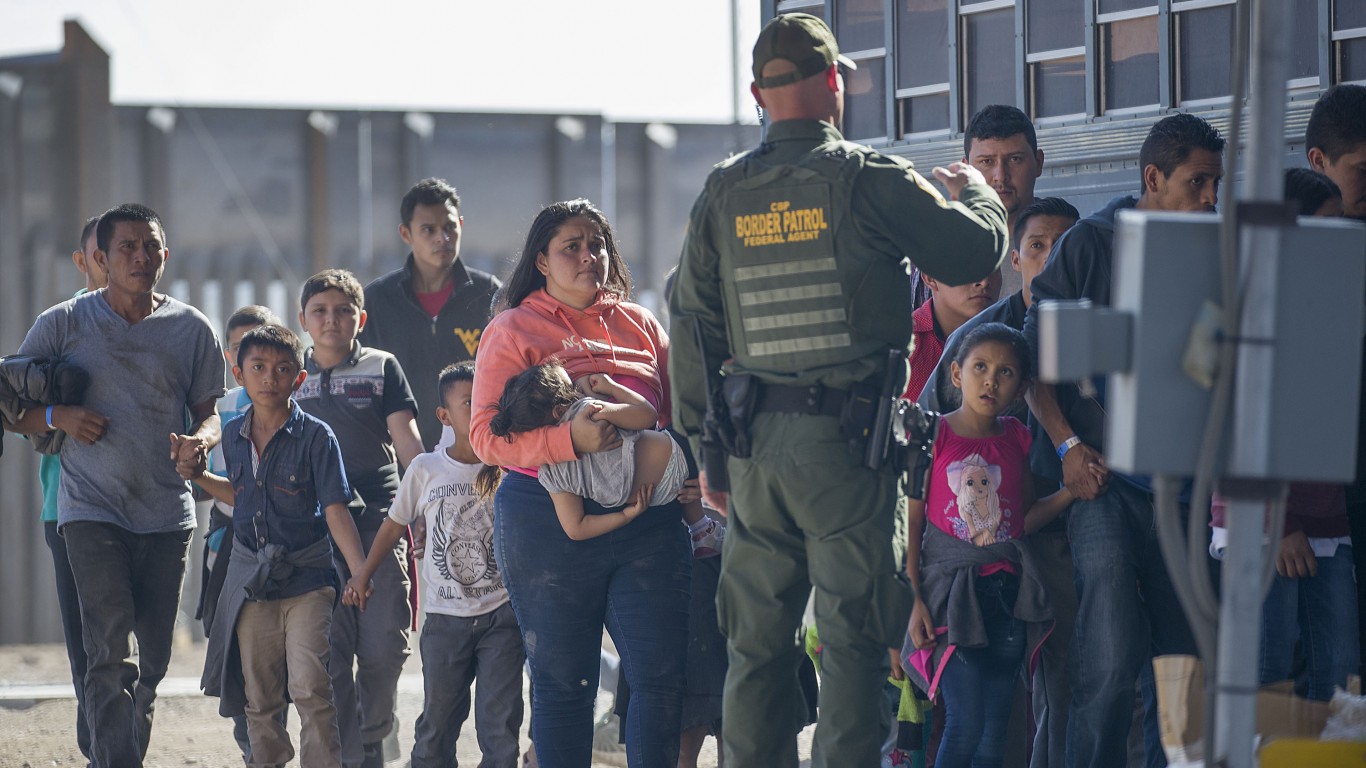
2. Illegal immigration
> Partisan divide on issue: 45 pt. gap between Republicans and Democrats (tied)
> Likely Democratic voters who see issue as a “very big problem”: 25% of those surveyed (14th highest of 16 issues in survey)
> Likely Republican voters who see issue as a “very big problem”: 70% of those surveyed (3rd highest of 16 issues in survey)
> American adults who see issue as a “very big problem”: 47% of those surveyed (tied)
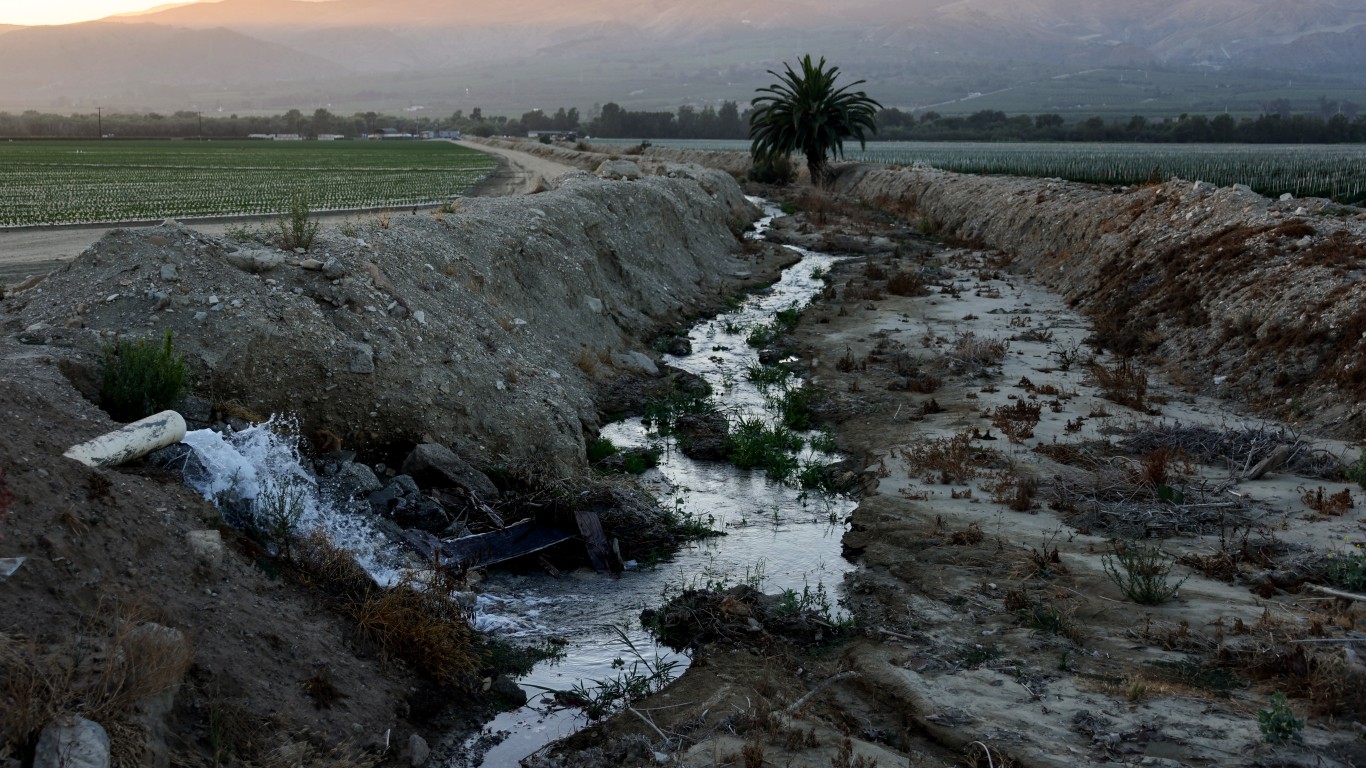
1. Climate change
> Partisan divide on issue: 50 pt. gap between Republicans and Democrats
> Likely Democratic voters who see issue as a “very big problem”: 64% of those surveyed (3rd highest of 16 issues in survey)
> Likely Republican voters who see issue as a “very big problem”: 14% of those surveyed (the lowest of 16 issues in survey – tied)
> American adults who see issue as a “very big problem”: 39% of those surveyed
Want to Retire Early? Start Here (Sponsor)
Want retirement to come a few years earlier than you’d planned? Or are you ready to retire now, but want an extra set of eyes on your finances?
Now you can speak with up to 3 financial experts in your area for FREE. By simply clicking here you can begin to match with financial professionals who can help you build your plan to retire early. And the best part? The first conversation with them is free.
Click here to match with up to 3 financial pros who would be excited to help you make financial decisions.
Have questions about retirement or personal finance? Email us at [email protected]!
By emailing your questions to 24/7 Wall St., you agree to have them published anonymously on a673b.bigscoots-temp.com.
By submitting your story, you understand and agree that we may use your story, or versions of it, in all media and platforms, including via third parties.
Thank you for reading! Have some feedback for us?
Contact the 24/7 Wall St. editorial team.
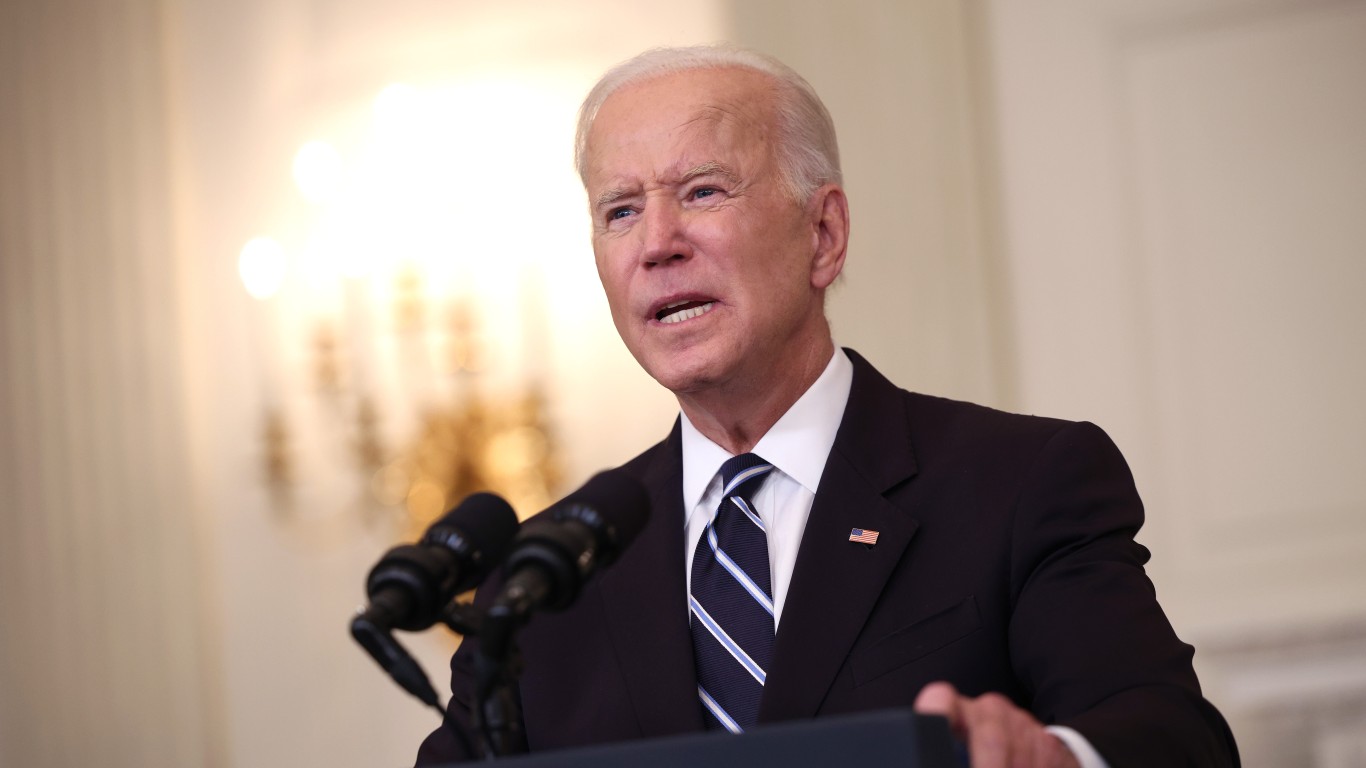 24/7 Wall St.
24/7 Wall St.
